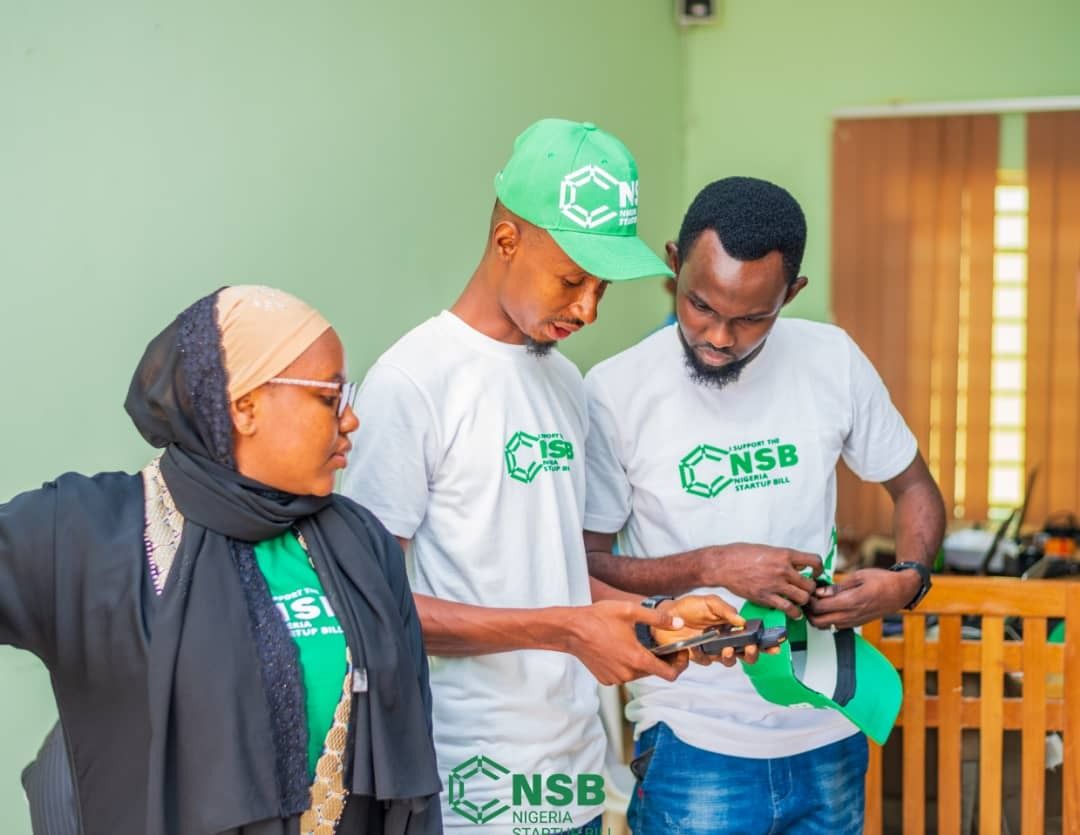How the proposed startup bill will drive growth in Nigeria's tech ecosystem.
An exclusive Interview with a volunteer supporting the development and passage of the bill, Tomiwa Aladekomo (CEO, Big Cabal Media), on how the Nigeria Startup bill will impact the ecosystem.

The growth of the Nigerian Tech ecosystem has been rapid in the last few years due to the many startups that have hit unicorn startups. But growth in the sector is still being impeded by political interference, lack of infrastructure, and regulatory complexities.
To solve these problems, the Nigerian presidency with a group of key stakeholders are drafting the Nigerian startup bill. The bill will try to solve some of the major issues faced by startups and regulators in the economy and help bring more stability to the ecosystem.
One of the Presidential Advisory Strategic Group Members, Tomiwa Aladekomo had a conversation with BenjaminDada.com on how the startup bill will impact and contribute to the growth of the ecosystem. Detailed below are excerpts from the conversation with Tomiwa Aladekomo.
According to the bill, what is a startup?
According to the Bill, a (Nigerian) startup is an innovation or technology-driven company that meets the following criteria:
- is registered as a company under the Companies and Allied Matters Act and has been in existence for a period of not more than ten (10) years from the date of its incorporation or registration;
- has as its objective, the innovation, development, production or improvement and commercialisation of an innovative product or process;
- has its headquarters in Nigeria;
- has at least 51% of its shares held by one or more Nigerians, provided that where the level of foreign participation exceeds this prescribed threshold, the entity may still be entitled to enjoy the benefits provided under the Act if the ultimate beneficial owners of its foreign shareholders are Nigerian citizens;
- has as its innovative product or process, a new technology or a product/process which is technology-enabled;
- has at least 15% of its expenses attributed to research and development activities; and has less than 100 direct employees, excluding casual workers, consultants and personnel engaged through Business Process Outsourcing.
What problem(s) is the startup bill trying to solve?
The Bill is focused on addressing these three major things:
- Regulatory uncertainty, by driving collaboration between the public and private sectors to draft and pass laws that are clear and friendly, and address the interests of both parties. This regulatory certainty will boost investor confidence, and this will in turn cause a rise in Nigeria’s Foreign Direct Investment (FDI) inflows.
- Lack of an enabling business environment, by working with stakeholders to provide adequate infrastructure, friendly and transparent processes, fees, requirements etc.
- Limited local content, by creating a local content guide beyond oil & gas to boost local skills and local economic development.
- Startups can also expect to see incorporation support, intellectual property protection, and innovation incentives for both themselves and investors.
How will the startup bill contribute to the growth of the ecosystem?
Regulatory uncertainty disincentivizes investment, which is critical for the growth of our innovation space and the country broadly. So if this bill is able to reduce that uncertainty and create the kind of regulatory clarity that attracts capital, it would be a major win for the ecosystem.
Nigeria is also broadly a tough place to do business, both for established companies and startups. By creating transparency in rulemaking, taxes, fees and by encouraging the development of essential infrastructure, the bill will attempt to make Nigeria an easier place to start and grow a business. Particularly the kind of fast-growing innovative businesses that significantly move a country’s GDP and global perception upwards and create rewarding, high-paying jobs.
Please elaborate on the "Big Tent" approach
The Big Tent approach refers to the realization that the passing of the Bill requires the involvement of relevant parties in the Nigerian startup ecosystem (startup founders, employees, investors, professionals such as lawyers, the academia and other relevant bodies) and the government (Ministries, Directorates, and Agencies [MDAs], regulators, and policymakers). All of these stakeholders are working together to ensure that the NSB is actualised, and the team has deliberately built a process that includes extensive consultation with all of these bodies in the drafting and passing of the bill.
What are your predictions on the impact of this startup bill on emerging startups in Nigeria?
Simply put, when passed, the NSB will make it easier and more sustainable to launch, operate and grow a startup in Nigeria.
What has been the response of the government to this startup bill so far?
The NSB originated from the Presidency in collaboration with the private sector, and its implementation is driven by the Ministry of Comms. Thus, the government is in full support and has thrown its weight behind the Bill. We’ve engaged extensively with various MDAs (ministries, departments and agencies), with senators and representatives, with state governments and found enthusiastic reception. It may not always be obvious, but there are a lot of people in government who are keen to see policies that encourage the development of industry, job creation and bring innovative companies into their purview.
How can stakeholders contribute to the startup bill and get it passed into law?
Stakeholders can contribute to the Bill through communication and engagement.
In terms of communication, they can help to jointly review the drafts of the Bill and give their input, comments and suggestions on what areas the Bill doesn’t sufficiently capture.
In terms of engagement, they can join and collaborate with us on our engagement sessions, including focus group sessions and town hall sessions. Public input and support of the bill is valuable, across the web and social media, and in traditional media as well. The more public support the bill has, the greater the likelihood of its passing and success.
They can also volunteer their time and effort as part of the NSB Project team at startupbill.ng.







Comments ()